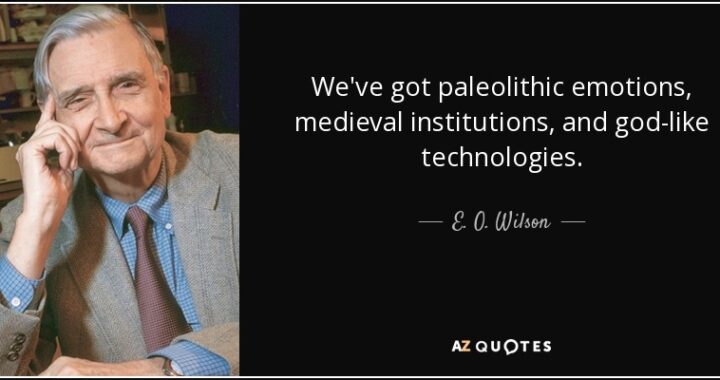by Gabe Ignetti 11/19/2025
The great philosopher Karl Marx once wrote: “Men make their own history, but they do not make it just as they please; they do not make it under circumstances chosen by themselves, but under circumstances directly encountered, given and transmitted from the past”. This quote crystalizes the role that history plays in our collective lives. It defines who we are as a people who are caught between our aspirations to complete an unfinished American revolution that leads to more democracy and yet clings to the prejudices of the past and a toxic tribalism that threatens to destroy us all.
History is a lens that gives us deep insight into who we are, what we are capable of, and what are our limitations. This is as much true of our personal and family histories all the way up to our national and world history. It stretches all the way back from our neolithic past towards this new age of technological miracles. The great social philosopher E.O. Wilson crystalized our present predicament even more precisely. “The real problem of humanity is the following: We have Paleolithic emotions, medieval institutions and godlike technology.” The re-election of Donald Trump in the United States with majority support among white sections of the poor and working class laid those primitive emotions bare.
World history in our present day and age reveals the primitive urge towards fascism which transcends national boundaries. It show us for what we are: primitive creatures with survival instincts that necessitated obedience to the fearless leader above all things which united us in clans and later into nation states in order to insure our survival.
Our rational core is continuously and instinctively subverted by our fear of the unknown which was decisive in keeping the hidden predators of our ancient past at bay but which, in our modern world, makes us slaves to our modern leaders with a sociopathic will to power and that binds us to the prison of their old ideas. As history progresses new ideas replace old ideas and new ideas become old ideas.
The primitive DNA that we all share works to preserve these old ideas. Old writings become sacred texts that are frozen in time whether they be the U.S. Constitution or the writings of Karl Marx. That DNA is in all of us. To put it precisely that lens must be turned on our own selves if we are to move forward. We need to understand that history is preserved by the gatekeepers of old ideas and yet it is only capable of truly breaking with our past when led by the heretics among us.
There is a hard lesson of history that our dark side is always there to subvert even the most forward looking sentiments as witnessed all the way back from the excesses of the Committees of Public Safety in Revolutionary France through to Stalinism, the killing fields of Pol Pot and the suppression of intellectuals and free thought in the Cultural Revolution in China.
It is what had ultimately subverted the grand ideas of 1917 and transformed the old Soviet Union into an intolerant police state that invaded other nations in order to protect old thinking at all costs. While the Soviet State gave ample lip service to dialectic materialism it utterly failed to grasp the essence of it which is the necessity to constantly examine, re-examine, and learn lessons of the past as opposed to mindlessly defending old Catechisms that were products of an older age.
This sort of free thinking was only possible in a free country and not a police state that puts it’s free thinkers up against firing squads and into insane asylums which was common practice all the way up to the time of Gorbachev.
One such historical figure with that heretic bent was who was ultimately suppressed was Alexei Kosygin whose position was weakened and undermined following political upheaval created by the Prague Spring in a backlash among the party’s old guard against the reforms demanded of the people of Eastern Europe for socialism with a human face. Kosygins call for changes in the economy of the USSR centered around changes that involved the introduction of profitability and market mechanisms within a socialist framework which were viewpoints that were considered deviant from orthodox Marxist economics but which would ultimately be embraced and used by China to turn it into the worlds leading economic super power. Sadly the reactionary Brezhnev policies, which followed the old Catechisms blindly, led to utter ruin, bankruptcy and ultimately dissolution.
There are powerful lessons in this short overview. The first of these is the importance of, not just the preservation of free thought, but rather the embracing of it as a necessity to truly break from our past. It teaches us that only a truly free society is capable of this. It also teaches that all things must be the subject of ruthless criticism regardless of whether the target of those criticisms be older orthodoxies of the Right or newer orthodoxies of the Left. Ironically, this is something that was championed by Karl Marx himself.
Our ability to make progress is very much defined by historical developments rather than than utopian fantasies that have no place in our present point in history regardless of their merit. Our thinking must align with the people’s understanding of both possibilities and limitations within that context. Only then could history provide the light we need to guide our way forward.

Our History Defines Us
Posted in Pulse Line 2, Uncategorized.



